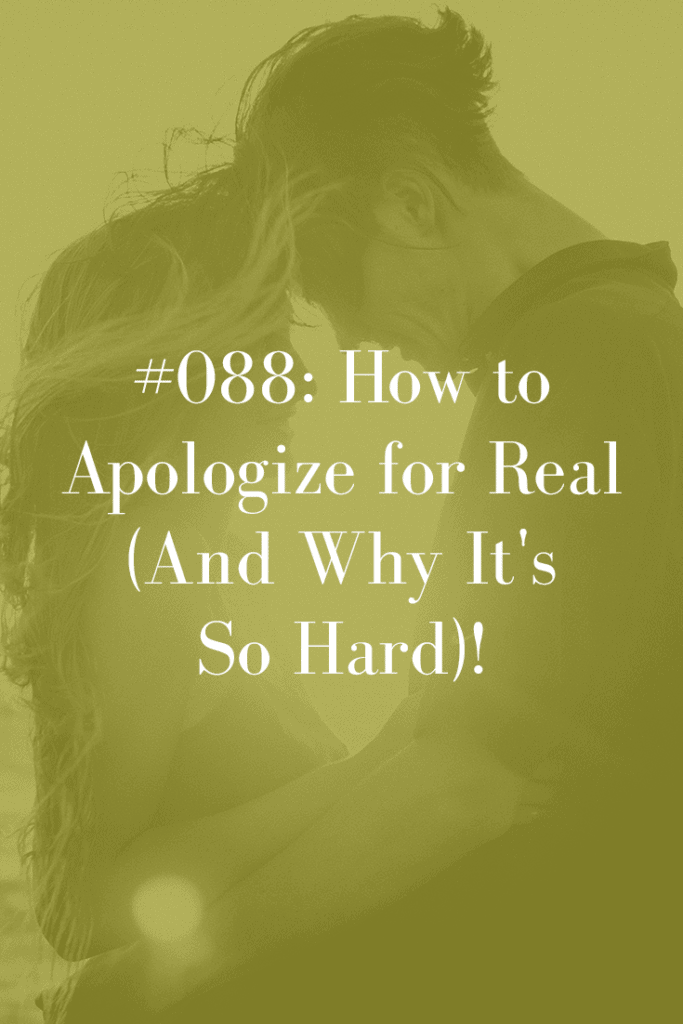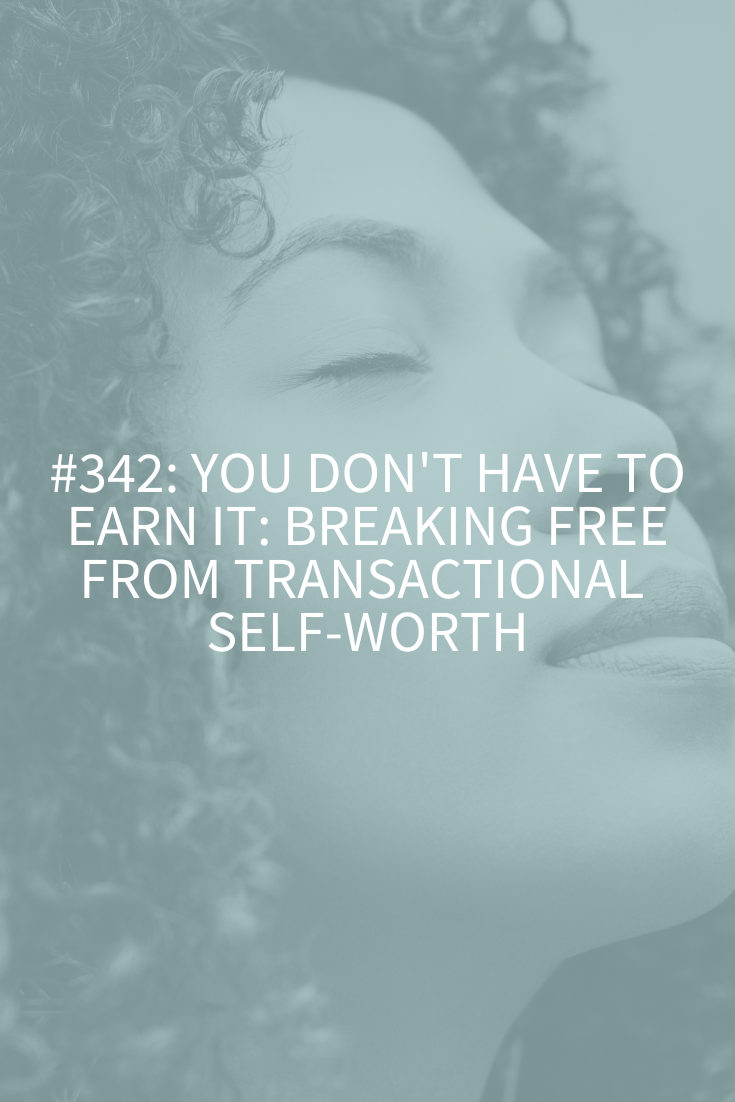
Today we’re going to talk about:
- Why it’s so hard to apologize
- What’s not an apology
- The 6 steps to apologizing for real
Top Take-A-Ways:
No matter how much you try to do all the right things, you will mess up, you will be misunderstood, you will misunderstand, you will piss off your partner or you will hurt their feelings, whether you mean to or not.
It doesn’t matter what the argument was about, it matters what we do with all the feelings that resulted from it. It matters that we want to restore peace and build intimacy. It matters that we think our relationship is important enough to stop and apologize when we’ve been the bad guy.
Apologies, when done right, have an almost magical power.
Not only can they defuse and neutralize anger, resentment and a full head-of-steam in an instant, they also create an immediate emotional connection where there was animosity and hurt just a moment before.
An apology can’t undo some hurtful thing you said or did in the past but, when done right, it can cancel out the negative effects of those actions and move your relationship forward.
Why is it So Darn Difficult to Apologize?!?
Reason #1: Apologizing is difficult because it temporarily reduces your self-esteem.
Reason #2: Another reason apologizing is hard is due to what’s referred to as the “magnitude gap.” Basically, this is the difference between how each person thinks about the severity of the crime.
Reason #3: Psychologist Karina Schumann of the University of Pittsburgh has been studying why it’s hard to apologize and she says that one of the big reasons is because it’s super hard on our self-image as a decent, caring, sensitive, moral person.
The 6 Steps to Apologizing for Real:
- Set an intention before you start. Make sure your motives are true and gather a loving heart focus first. Make sure that you speak kindly and from a place of compassion and openness.
- Acknowledge the offense. Say what happened and your part in it. You’ve got to completely and clearly acknowledge the offense. Do not even hint that the other person or some other outside force is to blame. Take full responsibility.
- Express remorse (I’m sorry) but add your feelings. “I feel so sorry and embarrassed that my actions created so much havoc for you.” “I feel sad that I was caught up in my feelings and didn’t realize the impact it was having on you.” “I feel guilty…”
- Show that you understand how it impacted them – whether you agree that it “should have” or not. Express empathy! Show that you’re trying to understand how they feel.
- Give the why – but it should be focused on you (I only did it because you pissed me off isn’t going to cut it)! Show that you’ve had some introspection and can see where you went off course. This is not a time to make excuses – it’s a time to say what was going on inside your head. Do not be defensive, no matter what.
- Say what you’re doing to stop this from happening again – what you’re doing to change the behavior. Can you make some kind of reparation? Or you can ask, “What’s one thing I could do/say right now to clean this up for good?”
Resources and Links:
Karen Schumann’s research
Ready to find out what goes on inside that crazy mind of Abby’s?
Get your weekly newsletter with all things Abby and life
Subscribe today to get my weekly thoughts, best practices and funny stories (you won’t believe my life!). This weekly reminder will keep you on the path to creating connected, happy relationships (especially the one with yourself)!












